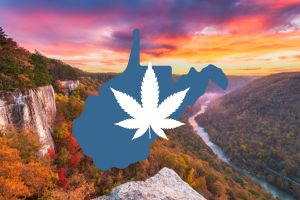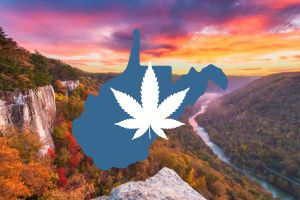Is Hemp Legal in West Virginia?
Posted by Tweedle Farms on Apr 13th 2021

West Virginia's verdant landscapes have become a burgeoning ground for the hemp industry, reflecting a nationwide shift towards embracing the potential of hemp and its derivatives, including CBD flower, CBD oils, pre rolls, and more. This article aims to elucidate the legal framework surrounding hemp and CBD in West Virginia, providing valuable insights for both industry participants and consumers navigating this evolving market.
The Legal Backdrop of Hemp in West Virginia
The journey of hemp legalization in West Virginia is closely tied to the 2014 Federal Farm Bill, which allowed states to initiate research programs on hemp cultivation. Building on this momentum, West Virginia enacted its own legislation to facilitate the growth and processing of hemp for research and commercial purposes, further solidified by the 2018 Federal Farm Bill which legalized hemp cultivation nationwide, provided it contains less than 0.3% THC.
Defining Hemp and CBD in West Virginia
In West Virginia, hemp is defined in alignment with federal standards: the plant Cannabis sativa L. with a THC content not exceeding 0.3% on a dry weight basis. CBD, or cannabidiol, is a non-psychoactive compound derived from hemp, known for its potential therapeutic benefits. West Virginia law permits the sale and consumption of CBD products, provided they adhere to the state and federal THC thresholds.
Navigating State Regulations and Compliance
The West Virginia Department of Agriculture oversees the state's hemp program, requiring licensure for hemp cultivation and processing. Compliance with state regulations, including THC testing and adherence to approved cultivation practices, is mandatory for operators within the hemp industry. This regulatory framework ensures product safety and legality, fostering a secure environment for industry growth and consumer confidence.
Industry Insights: Opportunities and Challenges in West Virginia
For stakeholders in West Virginia's hemp industry, the state's legal framework offers fertile ground for innovation and economic development. However, the path is not devoid of challenges. Navigating regulatory compliance, understanding market dynamics, and establishing consumer trust are pivotal aspects that industry participants must address to harness the full potential of West Virginia's hemp market.
Consumer Awareness and Legal Nuances
With the legalization of hemp-derived CBD products in West Virginia, consumers have gained access to a wide array of products, such as CBD gummies, CBD topicals, and even CBG flower. However, it's crucial for consumers to be well-informed about the products they choose, understanding the legal distinctions between hemp-derived CBD and cannabis-derived products, and recognizing the importance of third-party testing for product quality and compliance.
Addressing the Challenges: Industry and Regulatory Evolution
While West Virginia's hemp industry shows promising growth, it faces challenges similar to those in other states, including legal ambiguities, banking restrictions, and the need for ongoing research and development. The adaptability of industry regulations, informed by practical experiences and technological advancements, will play a crucial role in shaping the future of the hemp industry in the state.
Looking Forward: The Future of Hemp and CBD in West Virginia
As the legal and commercial landscapes of hemp and CBD continue to evolve in West Virginia, stakeholders can expect regulatory adaptations and market shifts. Continued dialogue between regulators, industry participants, and consumers will be key to navigating these changes, ensuring the sustainable development of the hemp industry, and maximizing its contributions to West Virginia's economy and public well-being.
Conclusion
West Virginia stands at a pivotal point in the hemp industry's development, with a legal framework that supports growth while ensuring consumer safety and product integrity. For industry stakeholders, understanding and adhering to these regulations is paramount. For consumers, informed decision-making is necessary for navigating the wide array of hemp-derived products. As the industry matures, the collective efforts of all parties involved will shape the future of hemp and CBD in West Virginia, promising economic opportunities and new avenues for wellness.



